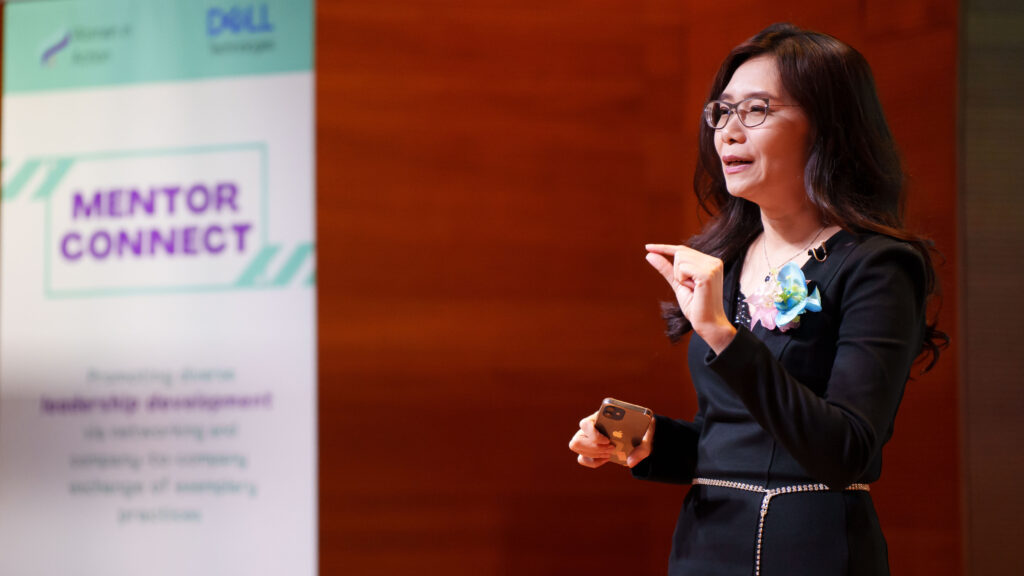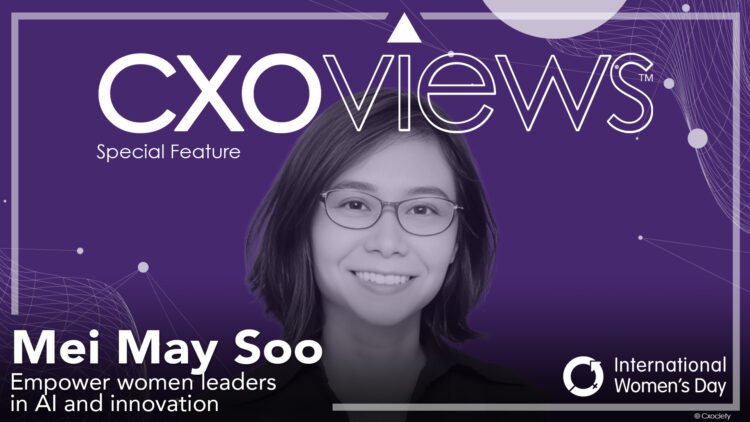"Across the region, only 23% of senior leaders in the top 50 tech companies are women. The picture is stark regarding technical leadership, as women hold just 8% of such roles in Southeast Asia." Closing Tech's Gender Gap in Southeast Asia, Boston Consulting Group, 2024
It is 2025, and the technology landscape is rapidly evolving, with artificial intelligence (AI) at the forefront of this transformation. As AI increasingly integrates into various aspects of business and society, the need for diverse perspectives and leadership becomes more critical. In Asia, women are emerging as key players in the AI space, driving innovation, addressing unique regional challenges, and shaping the future of technology. This article explores the contributions of women leaders in AI in Asia, highlighting their impact, the challenges they face, and the opportunities they are seizing.
The slow pace of change
In the years since Cxociety has covered women in leadership roles across Asia, the challenges for women to lead in the technology space have primarily remained the same: gender bias, bias in recruitment, pay gap, achieving work-life harmony, retention issues, underrepresentation in STEM education and lack of mentorship. While anecdotal feedback from executives we spoke to suggests women's participation across all roles and industries is improving, much still needs to be done for economies and industries to benefit from more balanced participation in societal development.

In the tech space, an industry that remains male-dominated, there is a noticeable albeit gradual change as more women step into leadership roles and make significant contributions. One such leader is Mei May Soo, chief AI global solutions specialist at Dell. In a recent interview, Soo shared insights into her role and the importance of an external-facing AI team. She explained that Dell's decision to create this team was driven by the desire to promote diversity and establish a strong identity in the AI domain.
"Dell has always been known to be an infrastructure provider, but now Dell wants to be known for AI as well," Soo noted. This shift reflects a broader trend in the tech industry, where companies recognise the value of diverse perspectives in driving innovation.
Soo's role involves leading the AI Innovation Hub at Dell, where she and her team conduct deep research and development on the latest AI technologies. They then share these discoveries and insights with customers and partners through workshops, technical briefings, and executive briefings. This educational outreach is crucial for helping businesses understand and adopt AI technologies effectively.
Rising to the challenge (and opportunities)
The information technology space is no stranger to bias. At the 2025 World Economic Forum in Davos, one of the sessions at the Women's Brain Foundation saw a panel discuss AI and women's empowerment. One key takeaway was the recognition of the need to improve algorithms by removing embedded biases from traditional, masculine-driven models. The panel called for the integration of feminine qualities such as empathy, collaboration, and creativity.
Cxociety dialogue with senior business, technology and finance leaders reveals that despite the interest in AI, businesses lack understanding and readiness. Many CFOs and CIOs struggle to identify practical use cases for AI in their organisations.
Soo's team addresses this challenge by acting as a consulting arm, providing free services to educate customers and partners about AI and generative AI. "We want our customers to progress in their AI maturity and invest more in this space," she explained.
The diversity of industries in Asia presents another unique challenge. Different sectors, such as finance, healthcare, and manufacturing, have distinct problems that require tailored AI solutions. Soo highlighted that her team's diverse backgrounds, ranging from bioinformatics to aeronautical engineering, enable them to bring expertise from various fields to address these challenges.
"It excites us when we meet customers from similar backgrounds because then we can bring our expertise from our past lives to help them integrate AI into their workflow and businesses," she said.
The importance of partnership ecosystems
Building a strong partner ecosystem is crucial for the widespread adoption of AI. However, many existing partners are primarily focused on infrastructure, and they need to be enabled to skill and scale in the AI space. Soo acknowledged this is a significant challenge, requiring ongoing enablement and technical workshops.
"We need partners on this journey," she emphasised.
There is no lack of investment dollars in AI. The Deloitte report AI at a Crossroads forecasts that investments in the APAC region in AI alone will reach US$117 billion by 2030.
To address the skills gap, Dell invests in training programmes to help partners understand AI and develop the necessary skill sets. While hiring external data scientists is an option, Soo noted that it is equally essential to re-skill existing employees to create a solid foundation for AI adoption.
The skills gap challenge isn't unique to Dell. McKinsey reports that companies are struggling to find and retain AI talent.
How AI and decision-making is progressing
The evolution of AI is set to transform decision-making processes across industries. Soo envisions a future where AI can automate the generation of insights and recommendations, empowering executives to make more informed decisions.
"It will be automation on steroids going forward when it comes to decision-making," she predicted.
While AI is not yet capable of fully automating decision-making, it has the potential to bring together information from various sources and provide a single, comprehensive recommendation. Soo believes that AI will become even more sophisticated in the next two to three years, enabling businesses to automate tasks and execute decisions more effectively.
Andrew Ng, founder of DeepLearning.AI, has also emphasised the rapid pace of AI development and the potential for automation. His insights align with Soo's vision of a future where AI is more significant in decision-making.
Back to Soo

Women leaders like Soo are crucial in shaping the future of AI in Asia. By driving innovation, addressing unique regional challenges, and fostering collaboration, they are helping businesses harness the power of AI to drive growth and create positive impact.
As AI technology continues to evolve, the contributions of women leaders will be essential for ensuring that it is developed and deployed responsibly and inclusively. The journey is ongoing, but the path is paved by visionary women bridging the AI divide and leading the way towards a more innovative and sustainable future for Asia.
"Think about where you can go next and how you can continue contributing. We want to build a talent ecosystem for the entire society. If we just focus on Dell talent, that's very narrow. We want to focus wider and have a bigger talent pool for everybody. It's a win-win situation." Mei May Soo
With International Women’s Day 2025 just around the corner, the operative word may well be empowerment as a call to action across both sides of the gender divide.




